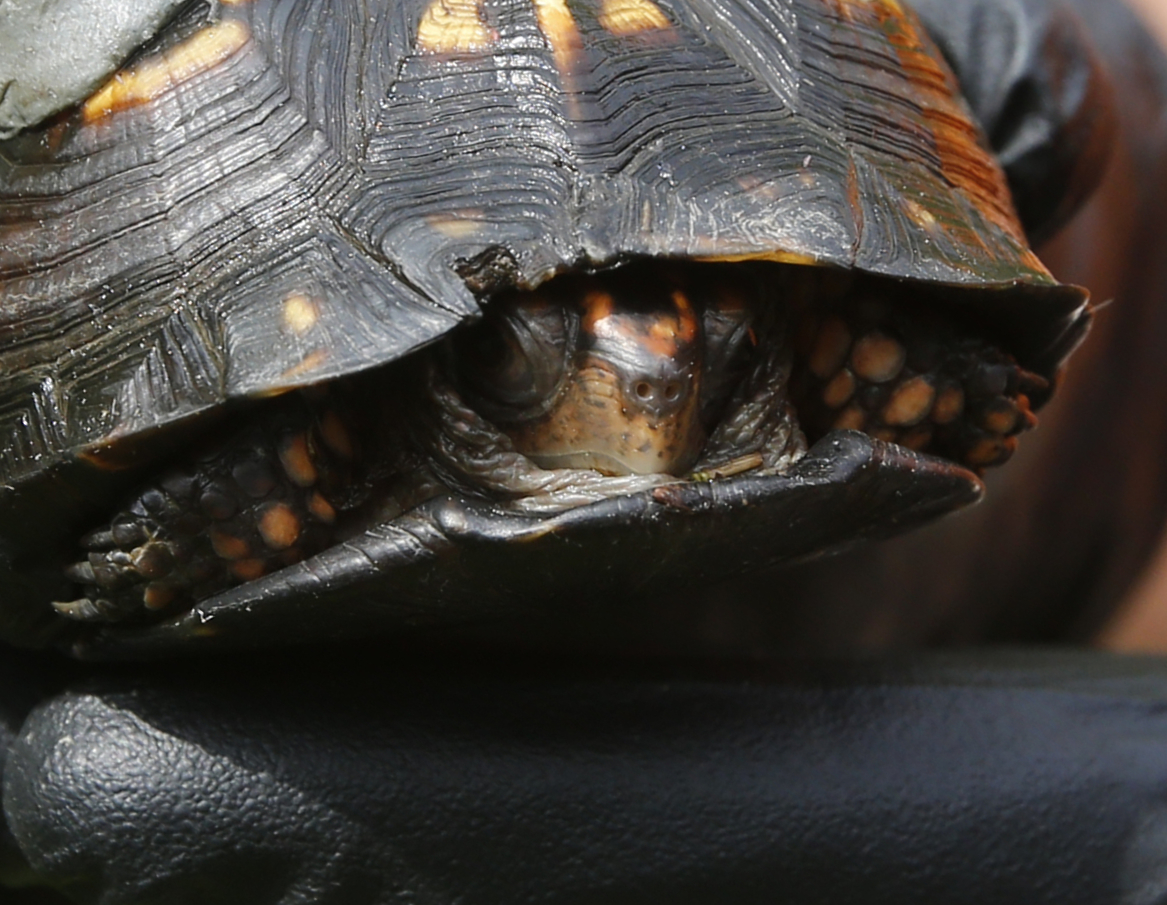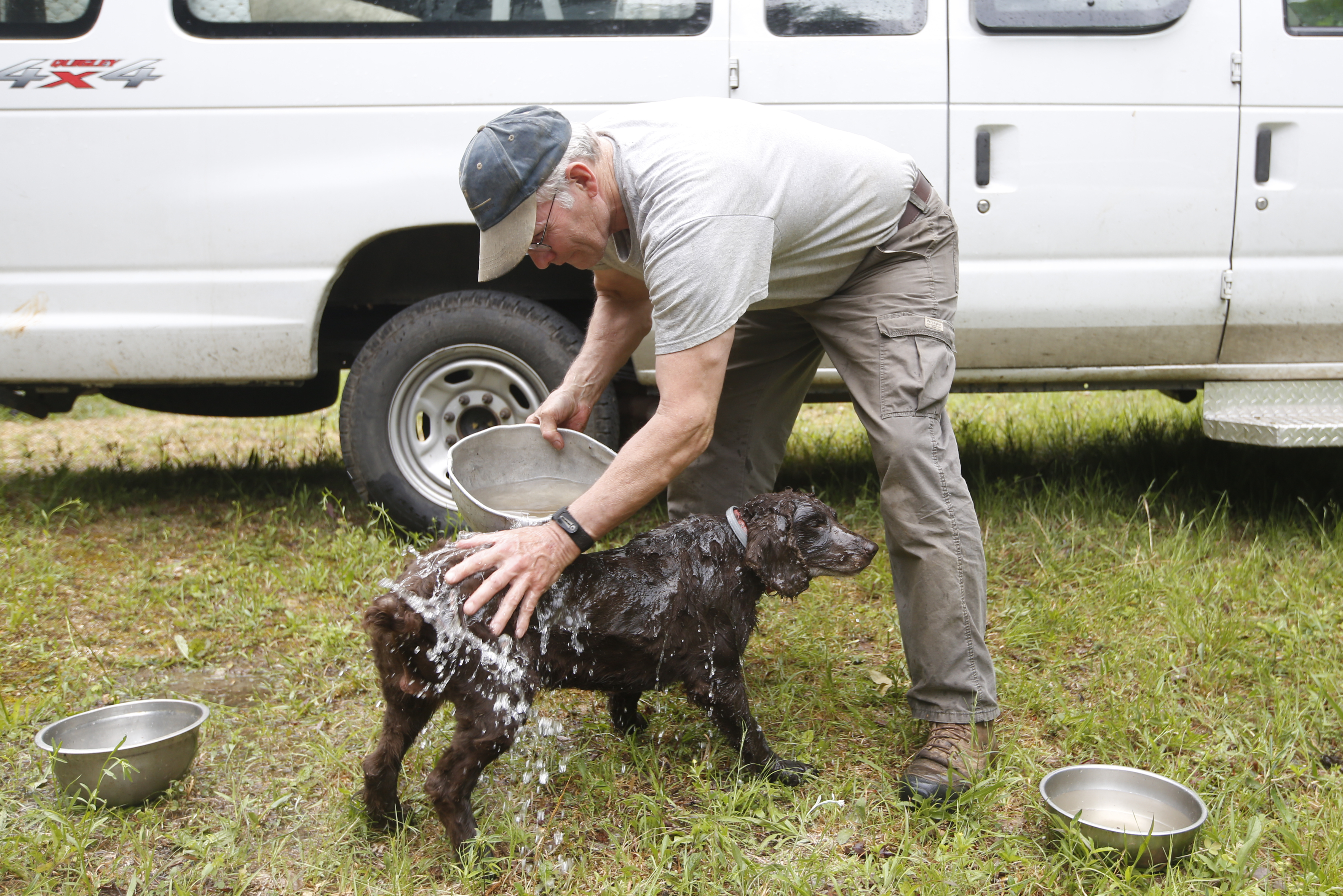 A female box turtle hides in its shell as it is held by graduate student Mark Dillard on Friday during a UTC Biology and Environmental Science survey of box turtles at Enterprise South Nature Park in Chattanooga. The team used visual search techniques and a team of turtle-seeking Boykin Spaniels to find, document, and attach radio transmitters to box turtles in the area.
A female box turtle hides in its shell as it is held by graduate student Mark Dillard on Friday during a UTC Biology and Environmental Science survey of box turtles at Enterprise South Nature Park in Chattanooga. The team used visual search techniques and a team of turtle-seeking Boykin Spaniels to find, document, and attach radio transmitters to box turtles in the area.What do a biology professor, a graduate student and a team of Boykin Spaniels have in common?
On Friday morning it was their desire to locate box turtles.
The University of Tennessee at Chattanooga's Department of Biology and Environmental Science was assisted by dogs for the first time in a survey at Enterprise South Nature Park designed to find box turtles and track them so that scientists can better understand what type of landscapes the reptiles gravitate toward.
Box turtles are the most terrestrial of the freshwater turtles in Southeast Tennessee, UTC biology professor Thomas Wilson said. But as greenspace decreases in the area, box turtles struggle. Wilson said it doesn't have to be that way.
"If planters could take box turtle data and plan landscapes in a way that kind of incorporates a lot of different ecological things, you could theoretically have box turtles persisting in some urban scenarios," he said. "No one is doing that, but that's an idea."
So with a team of Boykin Spaniels, Wilson and UTC graduate student Mark Dillard set out to find more hard-shelled participants for their research.
Boykin Spaniels are a medium-sized hunting dog and retired high school teacher John Rucker maintains a team of them devoted specifically to tracking down turtles.
"The animals are actively searching, not just with their eyes or ears, but also with their noses to find the scent of a turtle and locate it," Wilson said. "Once they've found it, we can process it and bring into the program."
Using the dogs expedites the process greatly. Wilson said researchers could look for a year without any help and find just five or six box turtles. But with the canine assistance, they could find that many in a single outing.
The UTC team uses simple hand searches and the telemetry method frequently to find turtles.
"This was our first time using the dog team," Wilson said, "and we'd like to do it again every year and make it a standard practice within the project."
Contact staff writer David Cobb at dcobb@timesfreepress.com or 423-757-6731.

